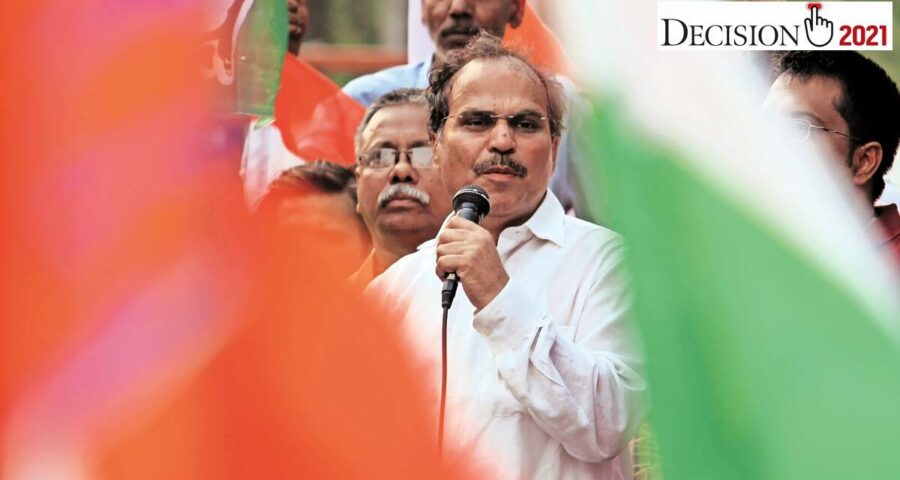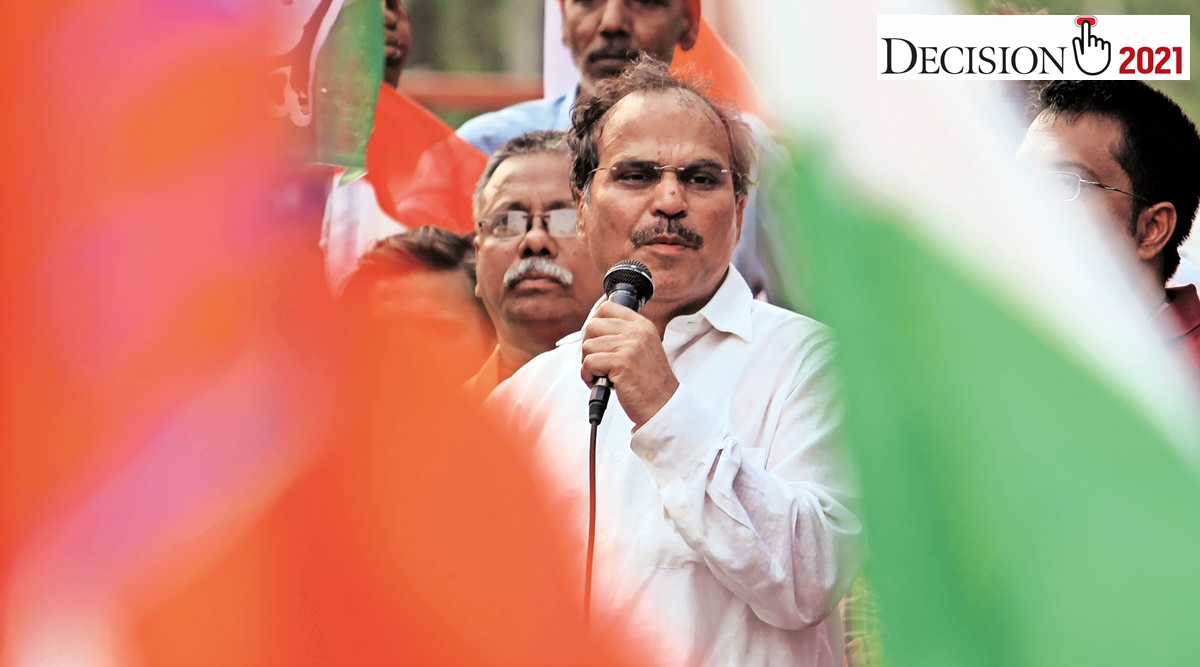Adhir Ranjan Chowdhury is perhaps Cong’s only leader in Bengal with a bastion to boast of. As the party state chief steers it through a tie-up, can the leader who relishes ‘swimming against the tide’ prevail against the current.
Of the 22 Assembly segments in Murshidabad in West Bengal, the Congress had won 14 in the 2016 elections, picking up another eight in neighbouring Malda — the two central Bengal districts alone accounting for half of the party’s tally of 44 in the last Assembly polls. One man was behind the Congress’s hold in the region, amidst its shrinking footprint in the state: Adhir Ranjan Chowdhury, the Congress’s leader in the Lok Sabha, the president of its state unit and arguably the only Congress leader in Bengal with a bastion to boast of.
His critics call him “Bahubali” who expanded the Congress organisation in Murshidabad through muscle power, and held onto the legacy of A B A Ghani Khan Choudhury in Malda. However, Chowdhury’s well-wishers have another name for him: a “streetfighter” rallying the cadre in Bengal’s violence-prone politics; and a “Robin Hood” who derives his popularity from the downtrodden, especially Muslims, with Murshidabad a Muslim-concentrated district.
Having fought the CPM all his political life, after starting out with the Revolutionary Socialist Party but switching to the Congress soon after, Chowdhury was also among the first to identify the need for the Congress and Left to join hands to defeat the Trinamool. He is now one of the staunchest critics of Chief Minister Mamata Banerjee, articulate and irreverent as he leads the Congress to another uphill battle, with a hold on Murshidabad, Malda as well as adjoining Nadia and Uttar Dinajpur districts.
Chowdhury had been president of the Bengal PCC in 2016 too when the Congress and Left entered tied up to take on the Trinamool. In Murshidabad, the Left had picked up four seats, while the Congress had emerged as the main Opposition party on the strength of its 44 seats.
After the 2019 general elections, the Congress leadership had rewarded him by making him the leader of the depleted party in the Lok Sabha. Last September, after Somen Mitra’s death, the Congress had turned to Chowdhury to take the charge of the party in Bengal too, just seven months to go for the elections.
“I always favour swimming against the tide… And I also relish this kind of adventure of swimming against the tide,” he had told The Indian Express then.
Chowdhury started his electoral career in 1991, losing his first Assembly contest from Nabagram seat in Murshidabad. However, in 1996, he had fought again from Nabagram and won. He has been a parliamentarian since 1999, when he won from Berhampore.
After she came to power in 2011, Mamata too had tried her best to make inroads into Murshidabad, sending her then close aide Suvendu Adhikari as an observer to the district. However, even as the Muslim votes swung to Mamata and the Trinamool in other districts, in Murshidabad, they remained with the Congress courtesy Chowdhury.
During the Covid pandemic, Chowdhury was also commended for his role in helping migrant labourers from Bengal.
The 64-year-old is now steering the Congress’s newest alliance in Bengal: with the Indian Secular Front (ISF), a party formed by Pirzada Abbas Siddiqui, the cleric of the influential Furfura Sharif shrine in Hooghly. A section of the Congress had been reluctant — with many apprehensive the move might not just split Muslim votes but rally the Hindus behind the BJP — but the high command has gone with Chowdhury. Lashing out at critics, the PCC chief had said they “have already extracted their pound of flesh”.
Chowdhury’s pragmatism was also on display at the Left-Congress-ISF rally at Brigade Parade Ground on February 28. Siddiqui had snubbed Chowdhury, with his supporters drowning out the Congress leader’s speech, and then gone on to seek votes for the Left while remaining quiet on the Congress.
Many thought Chowdhury would not stand for this — the alliance had, rather, moved to seal its seat-sharing arrangement (the Left is fighting 165 seats, the Congress 92, the ISF around 37).
Source: Read Full Article


